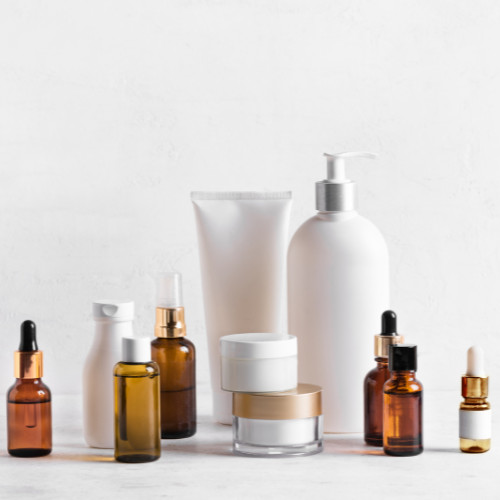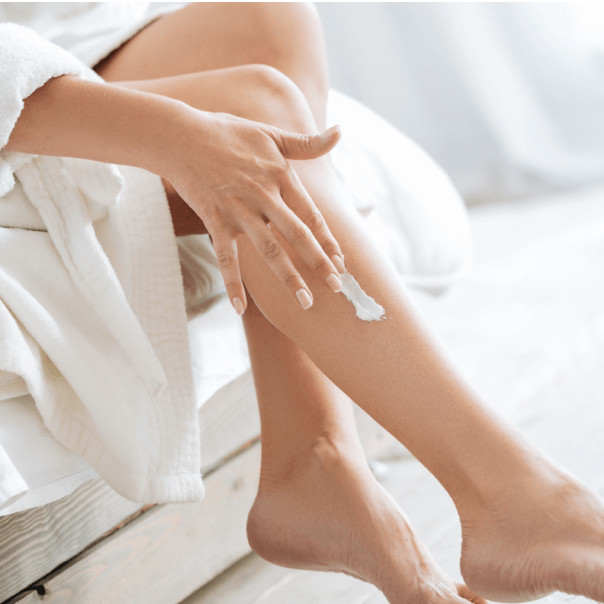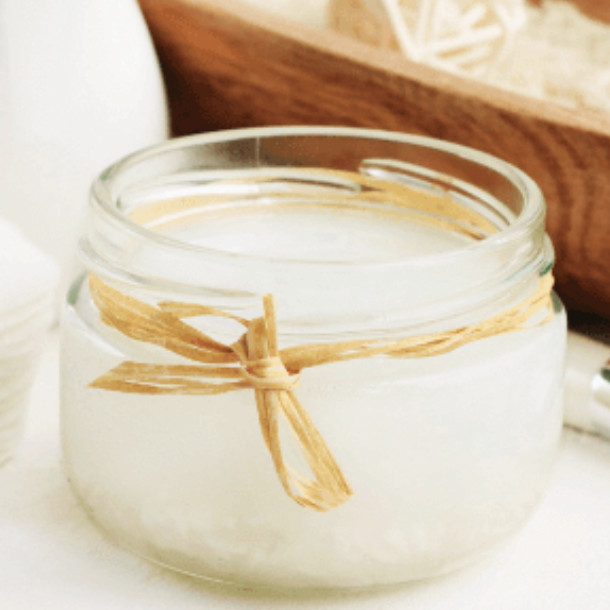 Hormonal shifts during menopause can lead to changes in skin texture, elasticity, breakouts (again?) and overall skin health. But, there are proactive steps you can take to ensure your skin remains radiant and healthy during this time of transition.
Hormonal shifts during menopause can lead to changes in skin texture, elasticity, breakouts (again?) and overall skin health. But, there are proactive steps you can take to ensure your skin remains radiant and healthy during this time of transition.
1. Stay Moist
Menopause and peri-menopause bring about hormonal changes, including a decrease in estrogen levels. One significant effect of this hormonal shift is a reduction in oil production by the skin's sebaceous glands. This decrease in oil can lead to dryness, a loss of elasticity, and hella increased sensitivity. To combat these effects, it's essential to adapt your skincare routine. Incorporate hydrating and nourishing products such as rich moisturizers and serums containing hyaluronic acid and squalene to help retain moisture.
2. Prioritize Sun Protection:
Sun protection is a non-negotiable step in any skincare routine, but it becomes even more crucial during menopause. Hormonal changes can make your skin more sensitive to UV damage, and prolonged sun exposure can lead to age spots and worsen existing skin concerns. Use a broad-spectrum sunscreen with at least SPF 30 daily, even on cloudy days. Don't forget to protect your neck, chest, and hands, as these areas often show sun damage more quickly.
3. Adopt a Gentle Cleansing Routine:
Menopausal skin may become more sensitive, so it's essential to use a gentle cleanser that won't strip your skin of its natural oils. Look for a mild, hydrating cleanser that can effectively remove dirt and makeup without causing irritation. Consider double cleansing if you wear makeup or sunscreen regularly to ensure your skin is thoroughly clean. Try using micellar water to remove makeup and a gentle cream or low-foaming cleanser to cleanse.
4. Include Antioxidants in Your Skincare:
Antioxidants play a vital role in combating free radicals, which can accelerate the aging process. Incorporate skincare products containing antioxidants like vitamin C, vitamin E, and green tea extract into your routine. These ingredients can help protect your skin from environmental damage and promote a healthy appearance.
5. Focus on Boosting Collagen
Peptides and retinaldehyde are powerful allies in supporting collagen production for menopausal skin. Peptides are amino acid compounds that can signal the skin to produce more collagen, helping to improve skin elasticity and firmness. Retinaldehyde, a gentle form of retinoid (Vitamin A), stimulates collagen synthesis and promotes skin renewal. Together, they work synergistically to combat the collagen loss associated with menopause, helping to reduce the appearance of fine lines and wrinkles, and restoring a more youthful complexion. Incorporating skincare products containing these ingredients can be an effective strategy to boost collagen production and maintain skin vitality.
6. Consult a Pro
If you're experiencing specific skin concerns during menopause, such as mild to moderate dryness, adult acne, or pigmentation issues, don't hesitate to consult a professional. Lean on me to help you to find the right skin care for your unique skin's needs, as well as suggestions for treatments to resurface skin, bring back vibrance, decrease hyperpigmentation and more.
For more chronic or severe concerns, as well as regular skin cancer checks, it is always a good idea to consult a dermatologist.
By following these skincare tips and being mindful of your skin's changing needs, you can embrace this phase of life with radiant, healthy, and beautiful skin. Remember, self-care and self-love are key elements in this journey, so cherish yourself and celebrate the skin you're in.
This post may contain affiliate links that support the creation of the content of this blog. If you use these links to buy something, I may earn a commission, at no additional cost to you. Thank you.








